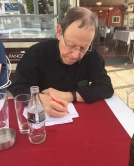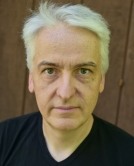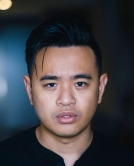TFAP
Tokyo Forum For Analytic Philosophy
Program

Punching Down and Humor Ethics
Speaker: Tatyana Kostochka
From: Ashoka University
URL: https://www.ashoka.edu.in/profile/tatyana-kostochka/
Abstract: It has become common to criticize comedians for “punching down.” But what does it mean to punch down? Although a philosophical account of punching down has not yet appeared in the literature, the principle that one should not punch down has been generally embraced. Recently, however, a number of philosophers have criticized the punching up/punching down distinction (e.g. Shoemaker 2024; Wilk and Gimbel 2024; Hietalahti 2024; Kramer 2023). In this talk, my aim is to provide a philosophically rigorous definition of punching down and defend it against these recent attacks. In particular, I will focus on criticisms by Shoemaker (2024) and Wilk and Gimbel (2024) and the concepts they propose to replace the punching up/down principle.

Episodic memory and the multiple functions hypothesis
Speaker: Doudja Boumaza
From: Center for Philosophy of Memory, Université Grenoble Alpes
URL: https://phil-mem.org/members/boumaza.php
Abstract: Debates in philosophy of memory have focused on the ontological issue as to what episodic memory is. Only recently, the functional issue as to what episodic memory is for has started to be tackled. Drawing on empirical evidence, many authors (see Addis et al., 2007) have started to say that the episodic memory neurocognitive system could have evolved not to support the remembering of past episodes of experience, but to anticipate future episodes of experience by their simulations through the combinations of stored experiential bits of information. In the wake of this breakthrough, the issue of the function of episodic memory has started to emerge as a topic of importance. Drawing from a Darwinian framework I propose that episodic memory has been shaped by a variety of evolutionary pressures, encompassing not only biological needs but also social and cultural factors. My main argument is that episodic memory is a multifaceted system serving multiple, sometimes independent, but often coextensive functions. The co-occurrence of these functions, I defend, underscores the flexibility and plasticity of episodic memory, a feature central to its evolutionary success (Anderson, 2010).

TBA
Speaker: Bronwyn Finnigan
From: Australian National University
URL: http://bronwynfinnigan.com
Abstract: TBA

TBA
Speaker: Fiora Salis
From: University of York
URL: https://www.york.ac.uk/philosophy/people/fiora-salis/#research-content
Abstract: TBA

The Practice Account of Political Authority
Speaker: Fabian Wendt
From: Kellogs Center for Philosophy, Politics, and Economics, Virginia Tech University
URL: https://www.fabianwendt.com/
Abstract: The most fundamental problem of political philosophy is to explain the authority of the state. This article presents a novel account: The practice account of political authority. The practice account belongs to the family of natural duty accounts, but, in contrast to other such accounts, it highlights the role that rules of conventional practices can play in explaining political authority. The idea is that we have a natural right to participate in conventional practices that secure basic justice and peace, as well as a natural duty to respect this same right in others; that duty is to explain why the rules of conventional practices that secure basic justice and peace can confer political authority on the state. Other natural duty accounts, the article shows, cannot explain political authority, because they fail to provide a working mechanism that links people’s natural duties to the authority of the state.

TBA
Speaker: Igal Kvart
From: Hebrew University of Jerusalem
URL: https://en.philosophy.huji.ac.il/people/igal-kvart
Abstract: TBA

TBA
Speaker: Graham Peebles
From: University of Tokyo
URL: https://grahampeeblesphilosophy.weebly.com/
Abstract: TBA

TGBA
Speaker: Thomas Hofweber
From: University of North Carolina at Chapel Hill
URL: https://www.thomashofweber.com/
Abstract: TBA

TBA
Speaker: Tony Cheng
From: Waseda University
URL: https://www.tonycheng.net
Abstract: TBA

TBA
Speaker: Christopher Tancredi
From: Keio University
URL: https://sites.google.com/site/christophertancredi/
Abstract: TBA

